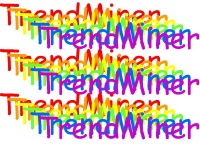
Research Departments
- Agents and Simulated Reality 4
- Augmented Vision 3
- Cognitive Assistants 11
- Cyber-Physical Systems 2
- Design Research eXplorations 1
- Educational Technology Lab 1
- Embedded Intelligence 3
- Institute for Information Systems 1
- Interactive Machine Learning 1
- Marine Perception 1
- Multilinguality and Language Technology
- Robotics Innovation Center 1
- Smart Data & Knowledge Services 5
- Speech and Language Technology 110
Research Topics
- Autonomous Systems 1
- Data Management & Analysis 1
- Human-Machine Interaction 7
- Image Recognition & Understanding 1
- Language & Text Understanding 18
- Machine Learning & Deep Learning 4
- Other 1
- Robotics 3
- Sensors & Networks 1
- Virtual & Augmented Reality 1
Fields of application
- Environment & Energy 4
- Farming & Agricultural Technology 1
- Financial Sector 1
- Health & Medicine 4
- Industrie 4.0 5
- Knowledge & Business Intelligence 4
- Learning & Education 4
- Mobility 2
- Other 10
- Smart Home & Assisted Living 1
- Trade & Logistics 1
Search narrowed by:
Displaying results 41 to 50 of 133.
Research Departments
- Agents and Simulated Reality 4
- Augmented Vision 3
- Cognitive Assistants 11
- Cyber-Physical Systems 2
- Design Research eXplorations 1
- Educational Technology Lab 1
- Embedded Intelligence 3
- Institute for Information Systems 1
- Interactive Machine Learning 1
- Marine Perception 1
- Multilinguality and Language Technology
- Robotics Innovation Center 1
- Smart Data & Knowledge Services 5
- Speech and Language Technology 110
Research Topics
- Autonomous Systems 1
- Data Management & Analysis 1
- Human-Machine Interaction 7
- Image Recognition & Understanding 1
- Language & Text Understanding 18
- Machine Learning & Deep Learning 4
- Other 1
- Robotics 3
- Sensors & Networks 1
- Virtual & Augmented Reality 1
Fields of application
- Environment & Energy 4
- Farming & Agricultural Technology 1
- Financial Sector 1
- Health & Medicine 4
- Industrie 4.0 5
- Knowledge & Business Intelligence 4
- Learning & Education 4
- Mobility 2
- Other 10
- Smart Home & Assisted Living 1
- Trade & Logistics 1







